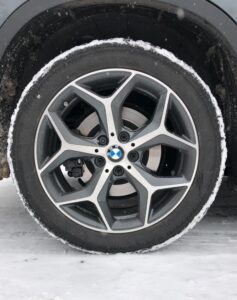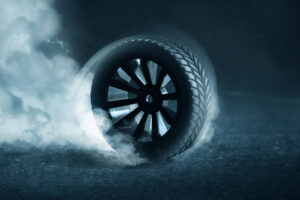How Does Wheel Size Affect Your Car’s Performance?
When it comes to your car and its performance – whether you are looking to upgrade cars or modify your car for better performance, there are many things you must take into consideration. This includes everything from choosing a manufacturer to the car’s engine size, mod-cons and more. But what happens when it comes to choosing your wheel size? And how will this decision affect the performance of your car?
With most people usually looking to increase the wheel size of their car, we have outlined all the pros and cons of increasing a vehicle’s wheel size and what important factors you need to consider prior.
How Can Bigger Wheel Sizes Benefit Your Vehicle’s Performance?
As well as looking better, there are actually other positives to having bigger wheels. These include but are not limited to:
- Improved grip and traction: Probably one of the most obvious benefits of bigger wheels is the improved grip and traction. Because there is more rubber on the track of the tyre, it has better road contact and therefore means better handling overall.
- Improved braking: Along with higher traction and grip, a larger wheel will also provide better braking. Because the rim is bigger, the car has a greater contact surface and helps to reduce braking distances.
- Better cornering: This is due to the car now having more road contact, a wider tread and stiffer walls. Thanks to this, the driver will experience better cornering and handling in all weather conditions.
What are the negatives of increasing your wheel size?
Whilst there are many benefits to increasing your vehicle’s wheel size, there are still some slight downsides that can affect performance. These include the following:
- Higher fuel consumption: Especially in recent years, a lot of motorists’ priorities have been focused on fuel consumption. With bigger wheels comes more weight, which will then enhance how much work the car’s engine has to do and therefore increases fuel consumption.
- Faster tyre wear: Because the wheels are heavier and put more pressure onto the road’s surface, this can lead to heavier steering and therefore more wheel scraping and lower sidewalls. This could mean that your tyres wear out a lot quicker than smaller ones would.
- Safety system issues: When elements in a car are changed such as wheel sizes, certain safety systems can have trouble working accurately and may not respond properly when needed. This can include the EBD, ABS and traction control.
Now we have outlined the pros and cons, there are still some other aspects you need to think about and know before changing your vehicle’s wheel size. To do this, you need to know what you are looking for.
- The letters and numbers on the side of your tyre will tell you the tyre’s ratio, radial construction, and diameter of your current wheels. This can help avoid fitting the wrong size wheels to your car.
- The distance between the centre of the wheel and the mounting surface is also another thing to consider when choosing a size.
- The cost of fitting larger tyres to your vehicle will also be more expensive than your smaller ones.
- Cheaper is not always better, if you find a larger tyre for a lower price and another priced slightly higher, it could be the case that the cheaper tyre has a lesser construction and will not last as long. This will only increase the costs of your wheels over the long run, so splashing out a bit more to start with is much more cost-effective.
If you are at all unsure of how to fit a tyre, or which size is the right one for your vehicle, it is important that you take it to the professionals. With etyres, you can book into a local garage near you or find mobile tyre fitters at an array of locations across the country and get the expert advice you need when choosing a different wheel size.




